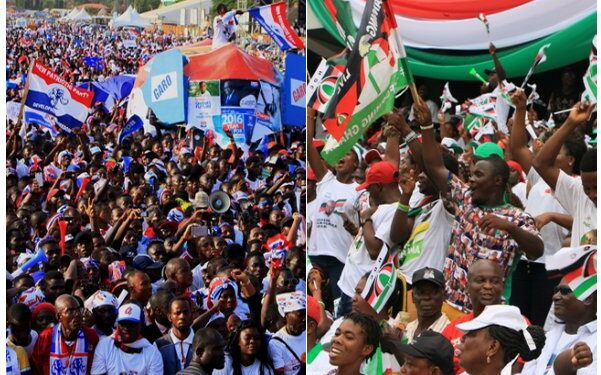After debt revamp, Ghana faces pre-election spending dilemma
“The thing is, if Ghana wants to re-access the Eurobond market, at some point they really have to rebuild trust with investors. And that comes from holding the line on fiscal consolidation.”
- Advertisement -
As Ghana’s debt-restructuring talks approach their final stretch, the country’s leaders are facing a new dilemma.
The government needs to prove to investors that it can keep spending in check as it navigates a debt revamp, following a 2022 default on some $20 billion worth of international bonds and loans. But the ruling party also faces an election this December, pressuring it to up spending on things voters care about. That’s leading some investors to fret the election will set Ghana back onto the slippery slope of wider budget deficits, potentially harming the debt restructuring progress.
- Advertisement -
“I’ve been covering Ghana since 2012, and in each election since then, the office bearer has overspent as the margin for victory between the two contesting parties is generally small,” said Carmen Altenkirch, an emerging market sovereign analyst at Aviva Investors Global Services Ltd.
- Advertisement -
“The thing is, if Ghana wants to re-access the Eurobond market, at some point they really have to rebuild trust with investors. And that comes from holding the line on fiscal consolidation.”
Ghana has always overshot its expenditure budget in election years, World Bank data shows, with the overspending particularly pronounced during the ruling party’s second term. In the run-up to the 2020 vote for instance, the budget deficit blew out to 11.4%, versus the targeted 4.7%.
Currently, the New Patriotic Party, headed by 60 year-old economist Mahamudu Bawumia, is pushing for a third term. The opposition National Democratic Congress is headed by former President John Mahama.
- Advertisement -
Ghana halted payments on most of its overseas debt just over a year ago amid a surge in repayment costs. It recently struck a deal with bilateral creditors, including China, to rework $5.4 billion of loans. But the government is still negotiating with commercial creditors, proposing a principal reduction of as much as 40% in October for this group, which includes holders of $13 billion of international bonds.
Ghanaian dollar bonds have rallied since the bilateral agreement, with year-to-date returns of 1.1%. That contrasts with an average 1.6% decline in a Bloomberg index of emerging and frontier-market bonds.
Resisting the temptation to overspend could add momentum to bringing the debt restructuring program to a successful end, Altenkirch said.
Ghana’s debt restructuring process could face another complication, should the World Bank downgrade the country’s income classification level, according to Charles Robertson, head of macro strategy at FIM Partners. That would imply an even bigger haircut for bondholders, potentially delaying negotiations further, he said.
Meanwhile an election win for Mahama’s NDC may not be entirely positive either, Robertson said, noting that “the opposition party also had a problematic record in power, running up high debt levels from 2008-2016.”
- Advertisement -


